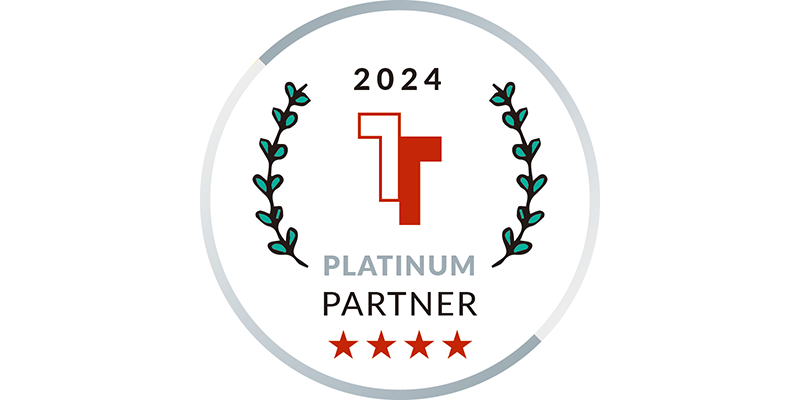In Asia, which encompasses the main markets of the tobacco business—Japan, the Philippines, and Taiwan—we have invested US$ 278 million, approximately 51% of the total amount invested since 2015. Furthermore, we are working through our local business sites to resolve social issues in every area where we have business operations around the world, from Western Europe, Eastern Europe, the Middle East and Africa, to North and South America.
Community investment
For our Group to grow sustainably, it is vital for us to contribute to the sustainable development of our society. Our JT Group Community Investment Policy determines a common goal across the JT Group: “To contribute to the development of inclusive and sustainable communities.” We believe that everyone should have the opportunity to participate in society, and that inclusive societies are better for business. In line with our community investment policy, and as a responsible local community member, we work with a wide range of stakeholders to resolve social issues.
Our focus areas
Through long-term partnerships with various stakeholders, we are currently implementing 498 community programs that contribute to the development of inclusive and sustainable societies across 65 countries. Our offices around the world carry out programs aligned with our JT Group Community Investment Policy.
Through our programs, we are focusing on three specific issues:
1. Reducing inequalities, e.g., helping underprivileged people gain access to food and education
2. Improving community resilience in disaster-prone areas
3. Protecting the environment, e.g., protecting and reinvigorating forests and green public spaces
Target
-
Between 2015 and 2030 we will invest US$600 million to help make communities inclusive and resilient, with our employees contributing 300,000 volunteering hours.
Progress against Targets
-
Since 2015, local business sites led our initiatives in areas throughout the world where we operate and continuously implemented initiatives to resolve social issues, focusing on the specific areas of reducing inequalities, improving community resilience in disaster-prone areas, and protecting the environment. As a result, the cumulative investment amount by 2024 reached 65.5 billion yen (US$548 million), and we have reached our target investment amount in Japanese yen six years ahead of schedule.
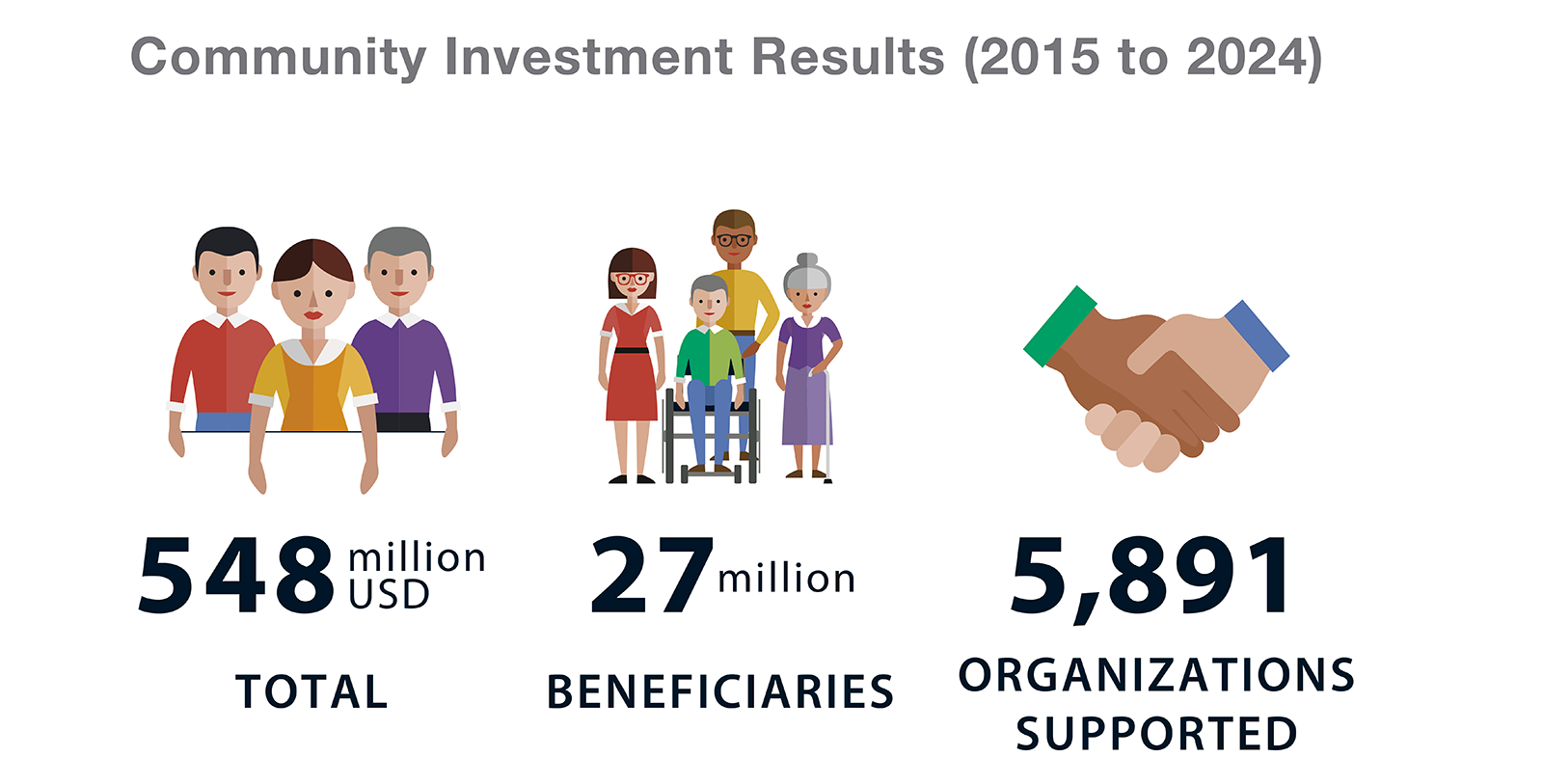
Community Investment Results So Far (2015 to 2024)
Investment results by geography
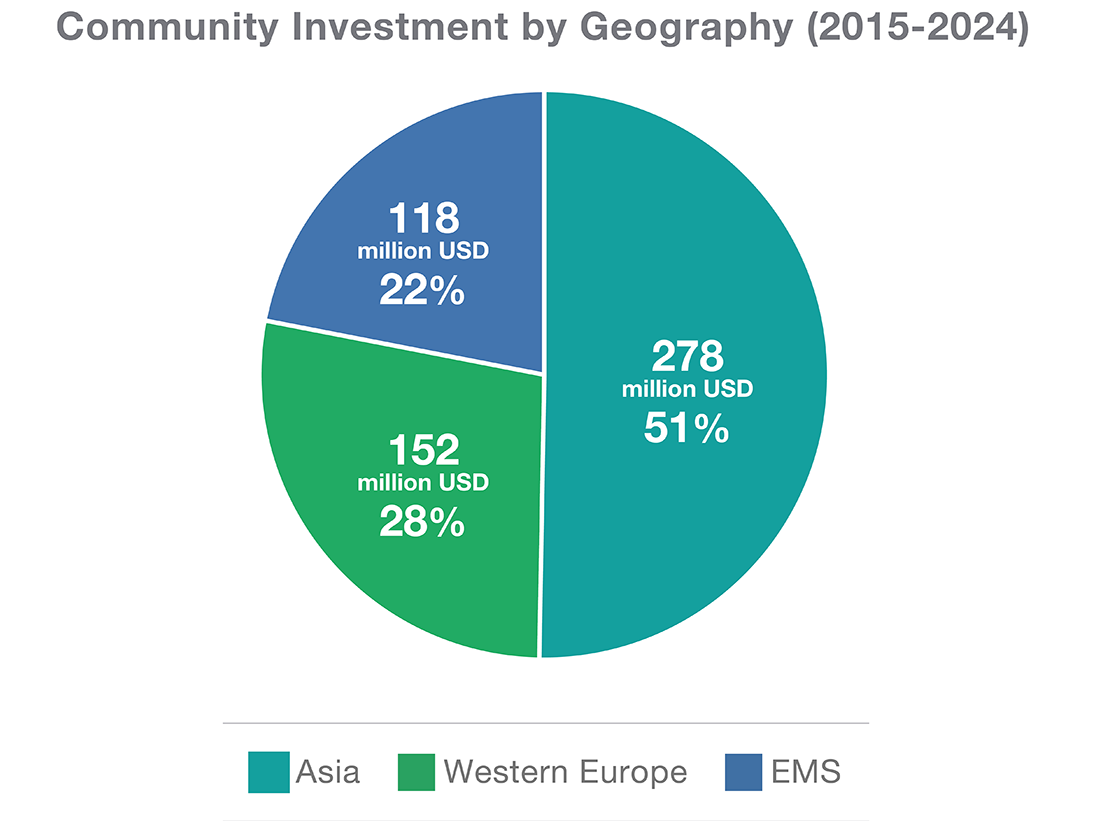
Investment results by focus area
To reduce inequalities, we are working to improve access to food water, sanitation, education, and culture and the arts for underprivileged people. Reducing inequalities accounts for approximately 47% of our investments since 2015.
In improving community resilience in disaster-prone areas, in addition to emergency support activities during disasters and medium-term recovery support activities, we are also promoting the creation of safe and sustainable regional communities by engaging in disaster risk mitigation activities during normal times. Improving community resilience accounts for approximately 10% of our investments since 2015.
In our efforts for protecting the environment, we are engaged in forest and biodiversity protection around the world, as well as environmental clean-up activities. Protecting the environment accounts for approximately 10% of our investments since 2015.
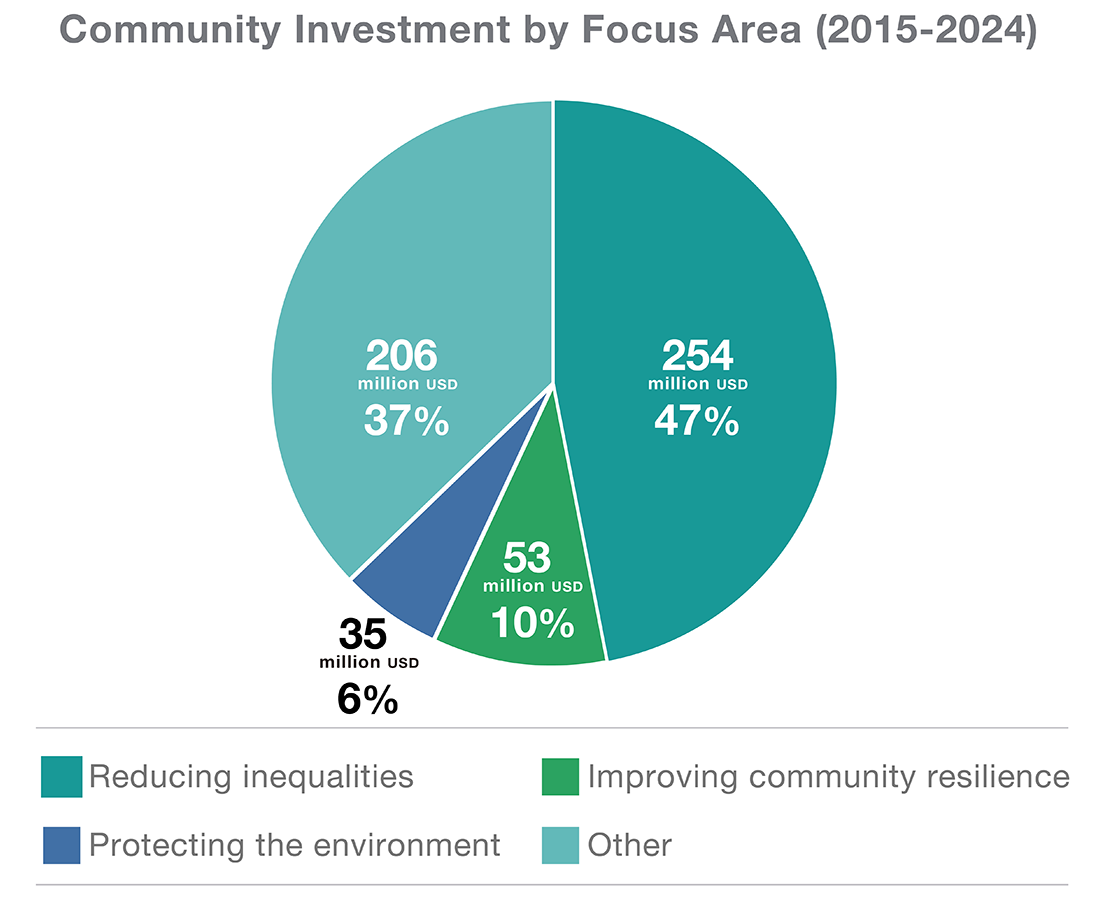
-
From 2015 to now, the JT Group has provided support for a total of 5,891 organizations and 26.51 million people all around the world. We will continue to evolve our initiatives to create even greater social impact toward the development of inclusive and sustainable communities.
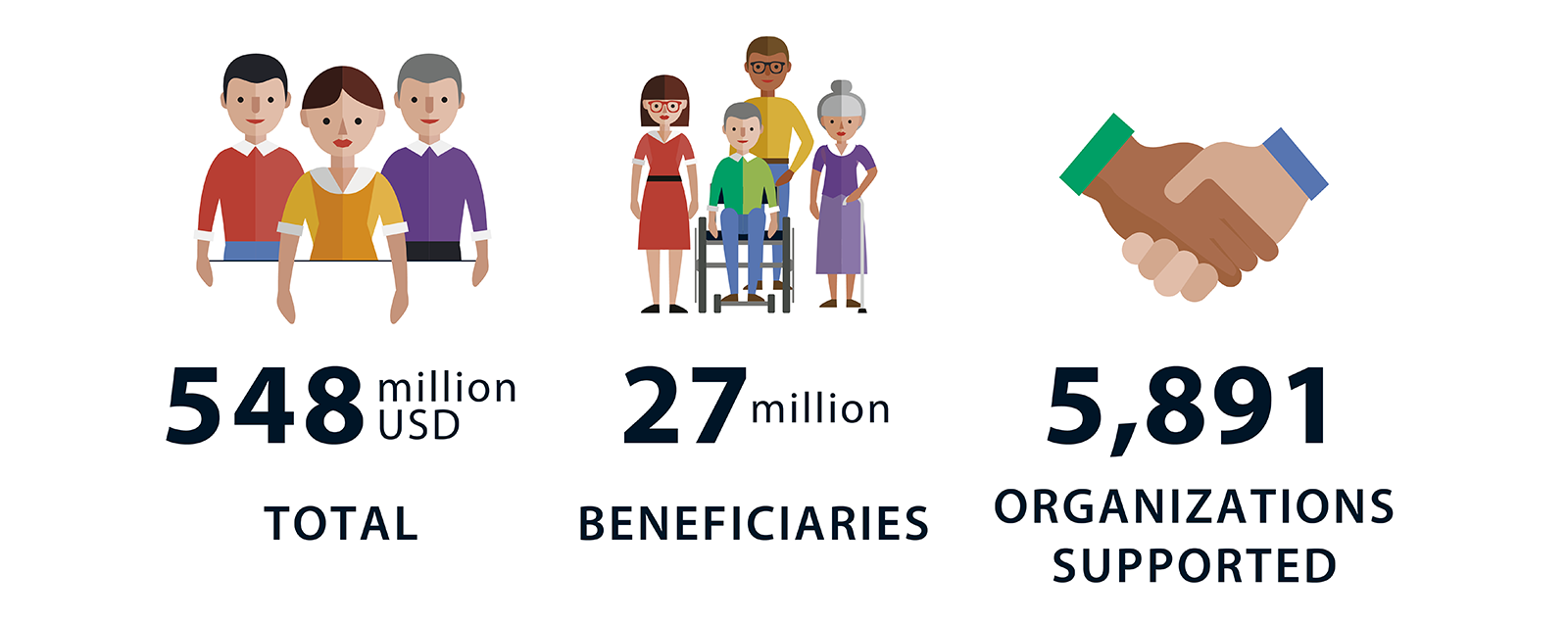
Contributing to our communities in 2024
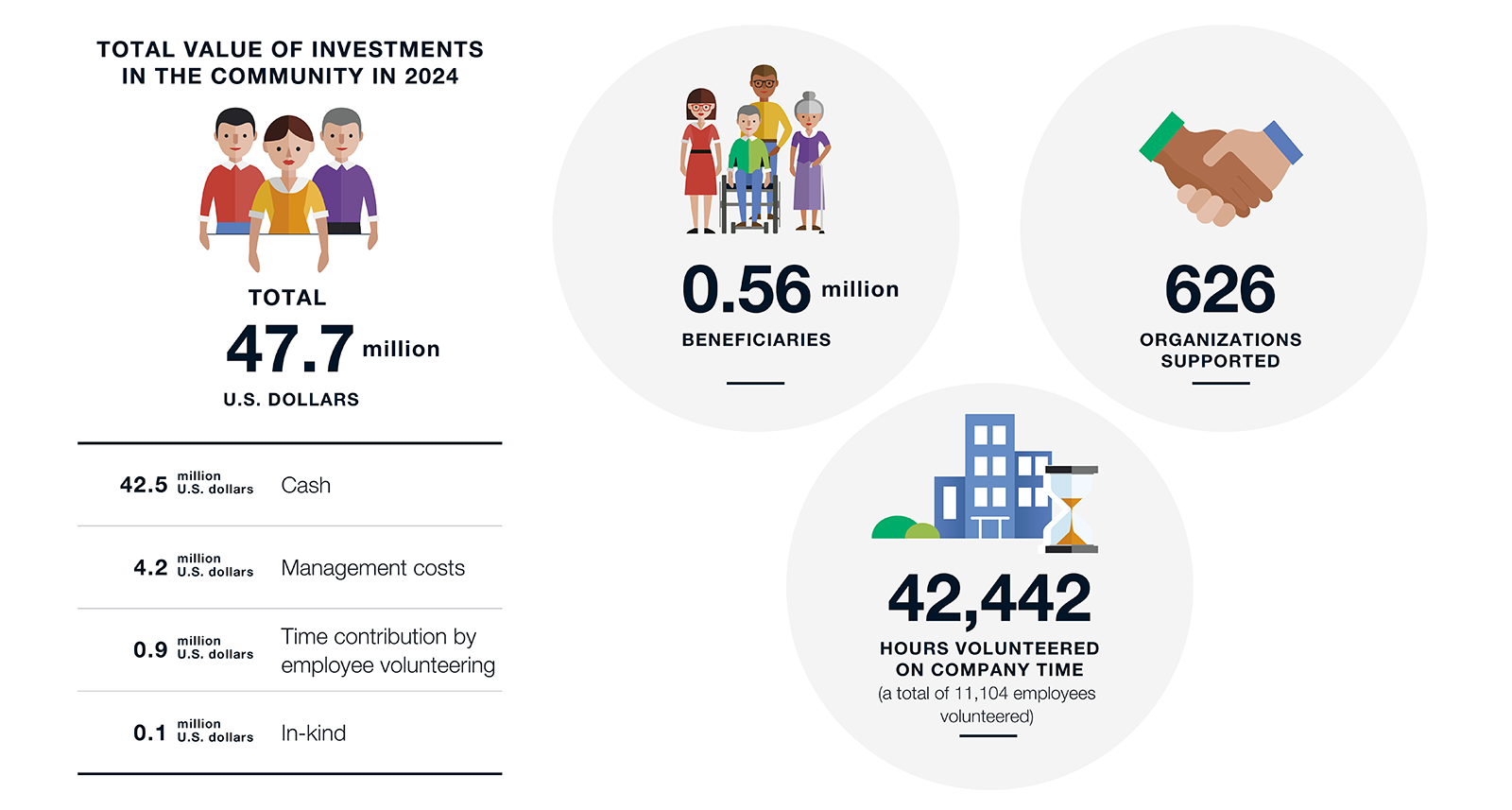
Measurement and management
To measure the social impact of our efforts, we use the Business for Societal Impact (B4SI)* Framework provided by Corporate Citizenship. We encourage more accurate reporting and measurement to ensure all of our programs deliver social impact according to our policy.
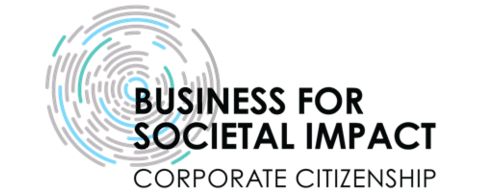
* B4SI is the global standard in measuring and managing corporate social impact.
Our initiatives
Reducing inequalities
We’re committed to ensuring that the most vulnerable and excluded people can participate in society and have their voices heard. That’s why we work with charities that support adult education, people with disabilities, older people, and other disadvantaged members of society.
In many communities, the things that most of us take for granted - clean water, food, literacy, education - are not readily attainable. We want to change that as best we can for the communities we interact with around the world.
In 2024, we supported 368 programs across 59 countries where we operate, reaching a total of 400,000 people.
Case study
OrchLab: making a difference by making music

Our UK team has partnered with the world-renowned London Philharmonic Orchestra (LPO) to support music-making and music appreciation among disabled adults through OrchLab. This unique project is delivered by the LPO in partnership with Drake Music, experts in music, technology, and disability.
OrchLab offers innovative accessible digital instruments, pioneering assistive technology, bespoke workshops, LPO recordings, training, and events. The interactive OrchLab website allows participants to explore LPO performances, create their own music using online instruments, and access additional resources including musical games and quizzes. The aim of the project is to improve participants’ wellbeing through music-making experiences that are truly accessible to all.
Since 2017, OrchLab has worked with an average of 85 disabled adults and 45 care staff per year, centered around an annual 28-hour intensive workshop programme for 20 disabled adults from core partner organisations. In 2024, a remarkable 84% of core participants reported an increase in their overall wellbeing and 88% reported an increase in their self-confidence.
In that same year, we celebrated the fourth in-person OrchLab Festival Day, which united a record number of nearly 200 disabled guests, care staff and partner organisations to explore new OrchLab instruments and share the experience of making music with others.
Improving community resilience
Our company has built expertise in disaster management over the years, due to the environmentally vulnerable geolocation of Japan. In 2024, we supported a total of 71 programs in 22 countries, reaching a total of 150,000 people.
In regions prone to disaster, the strength and sustainability of communities doesn’t rely solely on their ability to respond to disasters in the short term - it also depends on their resilience.
Community resilience means being able to adapt positively after a disaster, bouncing back so that they can continue to develop and grow stronger over the long term.
In our tobacco business, we help communities achieve this largely through the work of the JTI Foundation and markets-driven programs. We engage closely with partners and charities that respond to disasters, helping to revitalize communities so they can be more resilient in the future.
Read more about the JTI Foundation on the JT International website.
Case study
Winds of change
Peace Winds Japan (PWJ) is an international non-governmental organization dedicated to supporting people in distress and those threatened by conflict, poverty, or other turmoil. Although headquartered in Japan, PWJ operates around the world.
In Japan, we have partnered with PWJ since 2016 as part of our disaster management policy. In 2022, our collaboration was extended for three more years to foster the development of search and rescue teams and to support PWJ’s response to disaster-stricken areas all around the world in the event of a disaster.
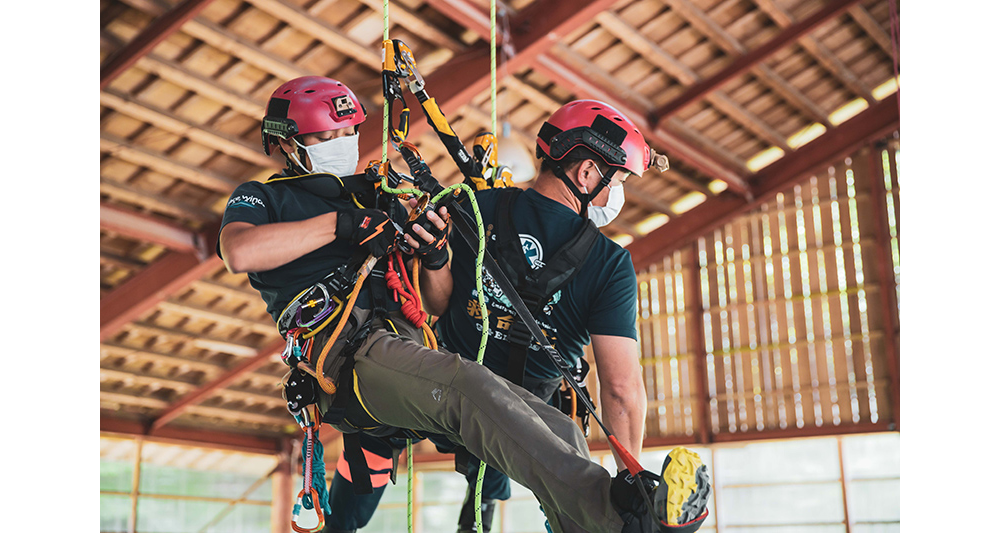
Over the three years, we will be supporting initiatives in the following areas:
- Training and developing search and rescue (SAR) teams, including some that work with SAR dogs
- Building a collaborative structure with SAR partner organizations overseas through joint training in preparation of future disasters
-
Strengthening relationships with stakeholders in Japan by:
- Setting up support agreements with local governments and hospitals at risk of being affected by disasters
- Building partnerships with supporting organizations and medical personnel
- Strengthening logistics capabilities and developing lifesaving equipment
- Organizing a logistics system and practical training for the setup of a multi-institutional field hospital
- Coordinating emergency supply transportation and rapid support activities in response to local information from PWJ in the event of a disaster
We hope that this initiative will help strengthen resilience-building all around the world. We will continue to work with a wide range of stakeholders to resolve issues in the area of disaster prevention as a priority within our community investment pillar.
Protecting the environment
We try to reduce the environmental impact of our operations wherever we can, through environmental programs that benefit both communities and our employees. In 2024, we supported 57 environmental programs in 33 countries where we have a business presence.
In Japan, we are actively supporting the sustainable maintenance of nine forests. Employees have the opportunity to volunteer in these forests and help to preserve these precious natural habitats. In 2024, 303 employees volunteered their time. Many of these employees reported that volunteering had a significant impact on their behavior towards the environment and their job satisfaction.
Feedback from employees volunteering at JT Forest
- 99% reported an increase in job satisfaction through volunteering
- 71% would like to change their behavior and move towards a more sustainable use of natural resources
- 84% reported that volunteering helped them to gain skills that are useful in their daily work
Other initiatives
The JTI Global WASH (water, sanitation, and hygiene) initiative
For many of the communities in which we operate, water remains a precious and scarce resource. That's why, in December 2019, we launched our Global WASH (Water, Sanitation and Hygiene) initiative, with the ambitious goal of providing access to clean water, sanitation and hygiene for one million people by the end of 2025.
Since then, we’ve already impacted the lives of more than 900,000 people. Thanks to our colleagues and partner organizations, we were able to bring solutions tailored to the specific needs of municipalities in Mexico, Ethiopia and Bangladesh. Moving forward, we're committed to upholding our goal, making clean water, sanitation and hygiene accessible to even more communities around the world.
In 2023, we extended our WASH initiative to Indonesia and Bolivia, aiming to reach around 100,000 beneficiaries and provide them with safe water and sanitation. In parallel, we conducted assessments and worked diligently to identify trusted partners to implement tailored projects in Uzbekistan and Morocco. These projects have just begun. In 2024 and 2025 more new WASH projects were kicked off in Brazil, Bulgaria and Vietnam. We look forward to making a positive and lasting impact to the lives of people in these new countries and creating a better future.
Read more about the JTI Global WASH initiative on the JT International website.
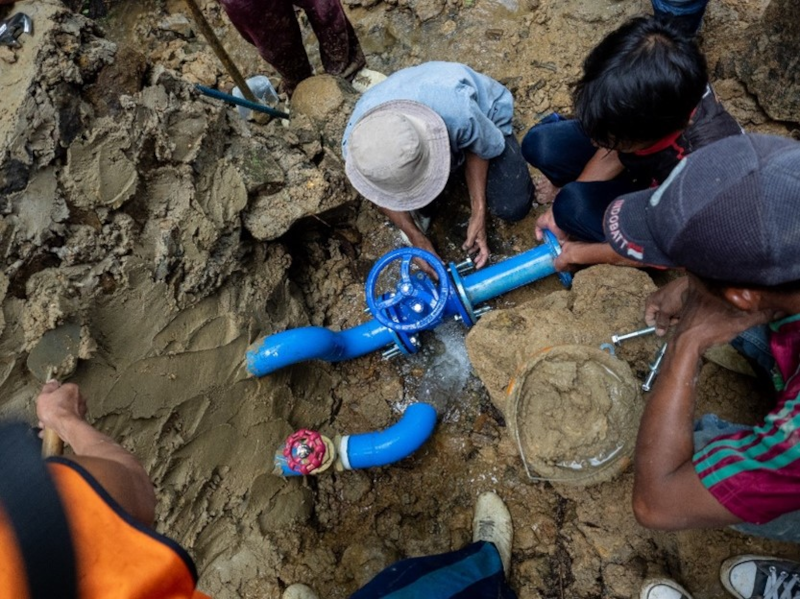
Volunteering opportunities
Volunteering brings mutual benefits for employees, our business, and the community. It also enables our teams to make a positive impact in the communities where they live and work by sharing their skills and knowledge.
We actively encourage our employees to take part in volunteering activities. We do this by organizing programs and events or by providing the necessary resources (funds through corporate matching, employee time, in kind, or employee donations).
In 2024, 11,104 employees worldwide spent 42,442 hours of company time supporting community programs.
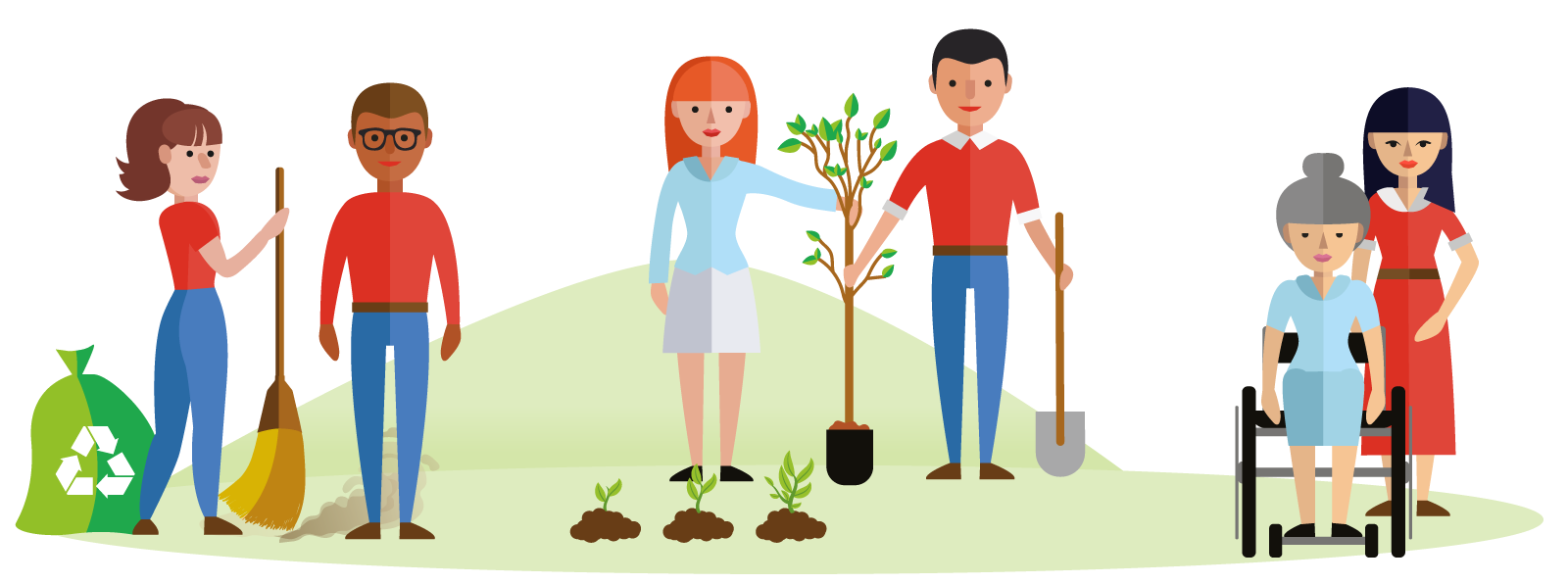
Case study
Walking healthy to contribute to society
TABLE FOR TWO (TFT) is a global initiative to fight food imbalance through a unique meal-sharing program. Established in Japan in 2007, it partners with corporations, restaurants, schools and other establishments to serve healthy meals. In Japan, we have been participating in the TFT program since 2010. The Company donates the equivalent of one meal to a developing country for every TFT meal purchased by employees at the cafeteria in Tokyo.
In this new program, for each employee who walks at least 8,000 steps in a day, the Company donates one meal (20 yen). When we introduced this program in 2020, about 2,000 employees participated. In 2024, a total of 6,787 employees participated in the program in May and October, and we were able to donate 2,192,100 yen to TFT. As an added benefit, this program helped to build team spirit and interaction between colleagues, while also improving employee awareness and attitudes toward social contribution.
Feedback from employees on the walking challenge program
- 75% reported that volunteering changed their behavior such as increased volunteering or being a more vocal advocate of the company
- 59% reported that volunteering had a personal impact such as on their self-confidence, job satisfaction and pride in the company
- 64% reported that volunteering improved their job-related competencies such as communications, teamwork or leadership skills
